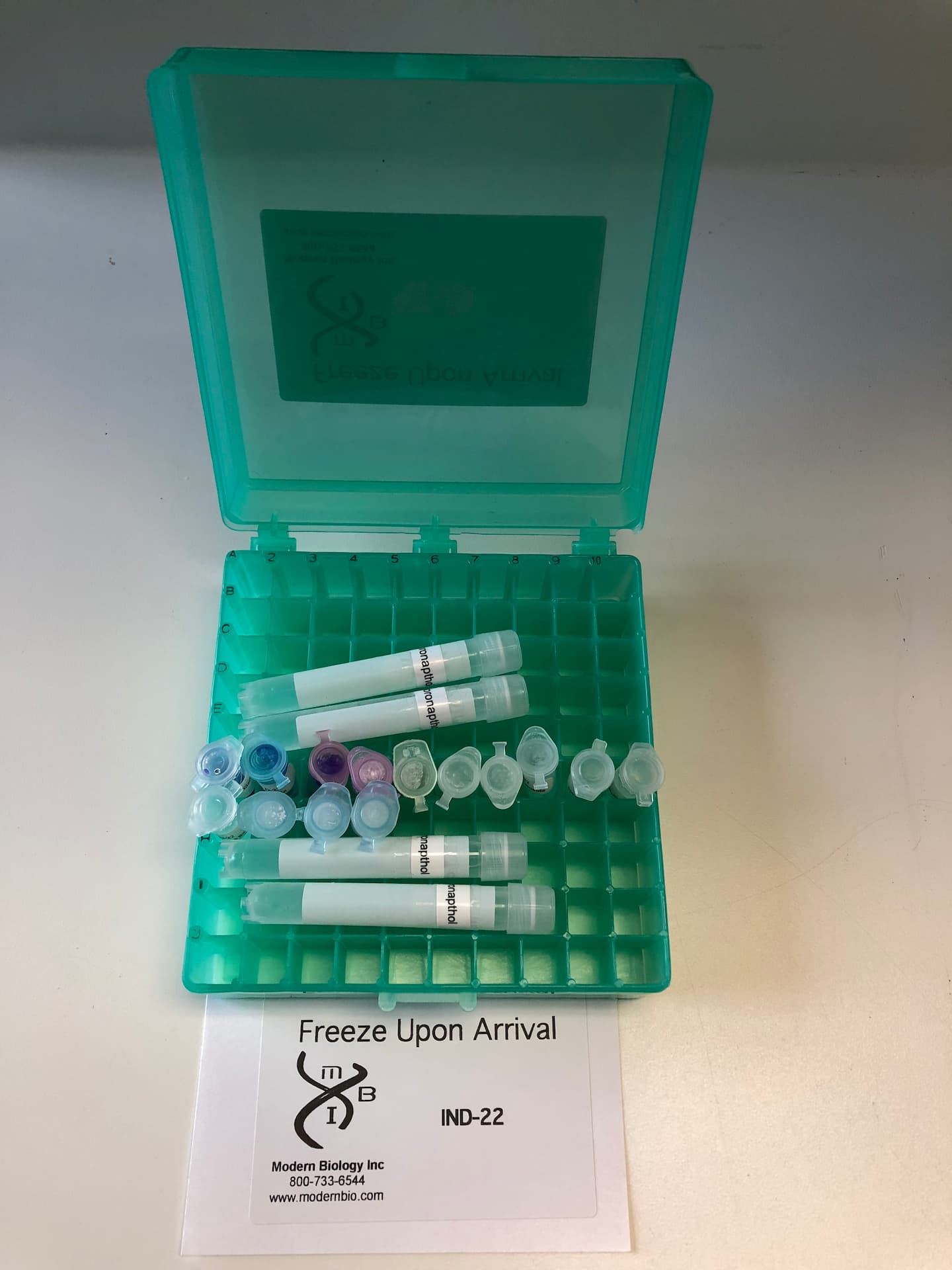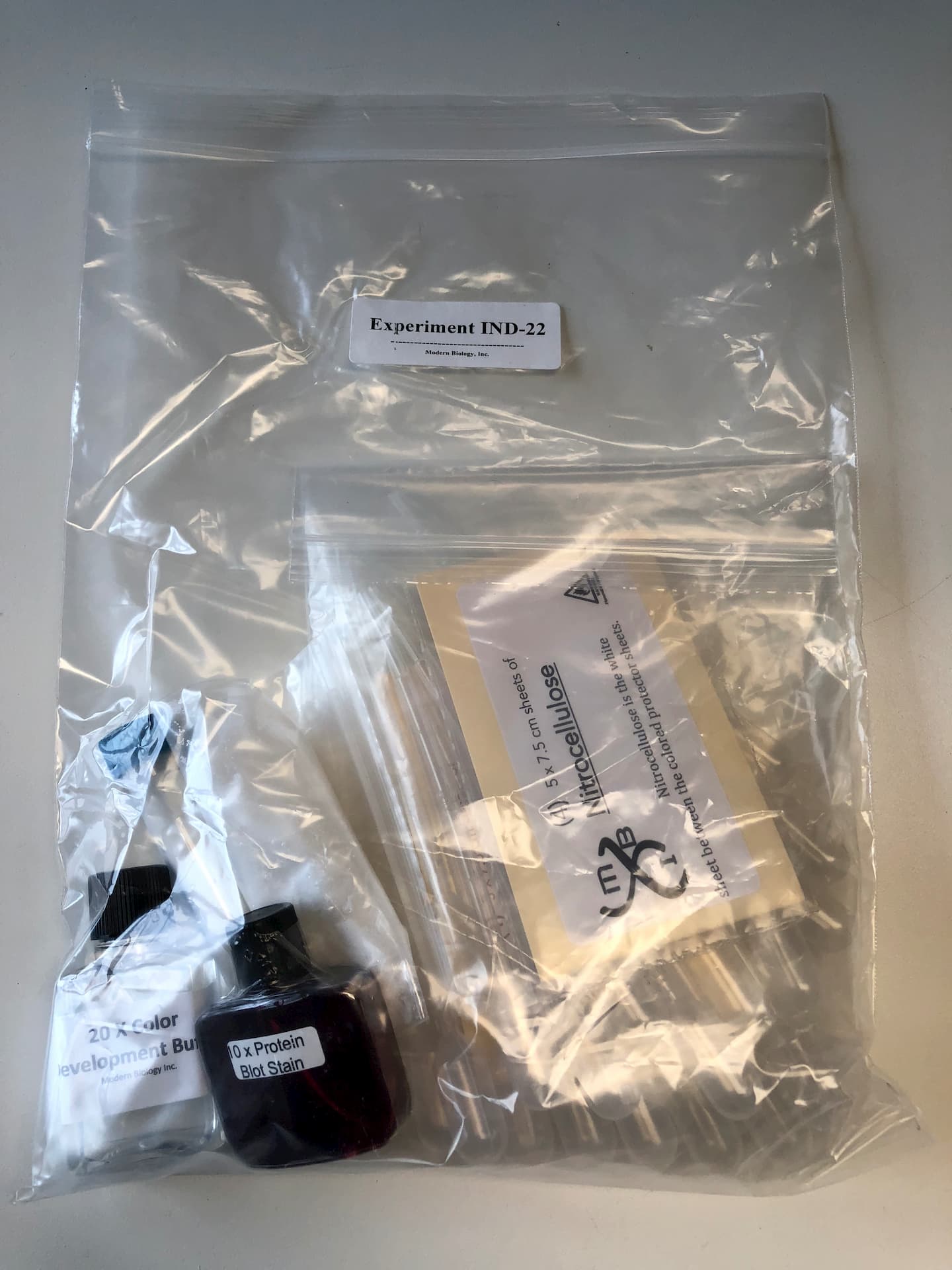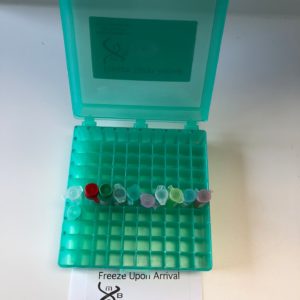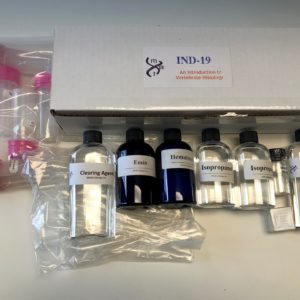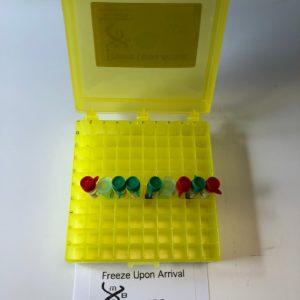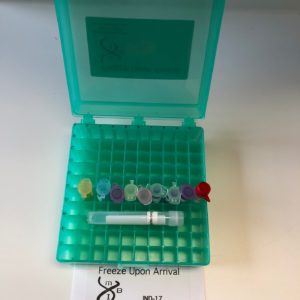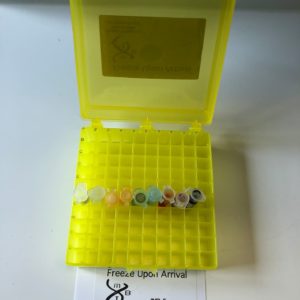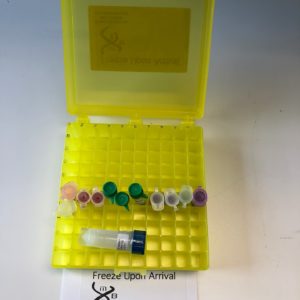Description
This program was designed to actively engage students in exciting biological research projects of their own design. The projects focus on peroxidases, which form a large family of related enzymes that are ubiquitous in plants. Plant peroxidase isoenzymes can be tissue specific, developmentally regulated and display variable tissue and, high salt and disease resistance defense reactions and this induction may be related to the abilities of peroxidases to strengthen the plant cell wall and to kill microorganisms.
Students begin their projects with a hypothesis, which is a statement of an ideal that they will test in the laboratory. They then test their hypothesis by carrying out a series of experiments using the materials provided with the program and vegetables, intact plants or roots and stems. They first use the technique of tissue printing which enables them to localize the peroxidases in tissue sections. They then quantify peroxidase activity by using a DOT-blot assay and spectrophotometric procedures. Students also carry out an electrophoresis analysis in order to characterize peroxidase isoenzymes in plant extracts that they prepare. In the final section of the program, students are given detailed instructions for organizing their data for presentation in a scientific paper. They are then instructed to write a paper that conforms to the style of a scientific publication using the detailed steps that are presented in the laboratory manuals.
This program for 8 groups of students requires about three 2-3 hour laboratory sessions.
A Few Titles of Student Papers:
Effects of salt stress on the levels, tissue distribution and isoenzyme profiles of peroxidases in the turnip.
Developmental changes in the corn stem as viewed by peroxidase types, amounts and tissue location.
Variations in peroxidase levels, tissue distribution and isoenzymes in different regions of the carrot.
 Due to Customs restrictions, we only accept orders from educational institutions within the Continental United States, Alaska or Hawaii.
Due to Customs restrictions, we only accept orders from educational institutions within the Continental United States, Alaska or Hawaii. 